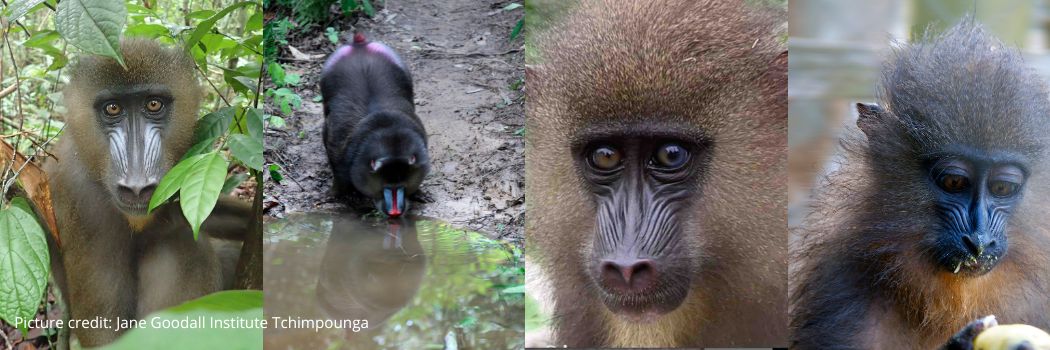
Meet Brek, Kiki de Mpacka, Vue de Loin and Kento – four rescued mandrills who were released back into the wild as part of a project led by our anthropologists.
Every year, rescue centres release animals, that are deemed ready, into the wild.
This is done based on the assumption that the animals will thrive most in their natural habitat, but this has never been scientifically tested with primates, until now.
Animals' well-being
Our team, working with Disney's Animals, Science and Environment and the Jane Goodall Institute, found that a very gradual phased re-introduction of mandrills into the forest with post-release support improved the animals' well-being.
After being released back into their natural habitat, the animals' stress response was lower in the wild than it had been when they lived at the sanctuary.
Stress reduced
The International Union for Conservation of Nature (IUCN) recommends a gradual release and post-release monitoring for primates but this is often not achieved due to cost and time restrictions.
This study provides evidence that slow and steady does win the race when it comes to the well-being of the animals, who had been orphaned by hunting and rescued by the authorities in the Republic of Congo.
After one year in the wild, the mandrills' stress response was about half what it had been in the sanctuary, suggesting that the mandrills were doing well in the wild.
Careful release process
Working in the Republic of Congo, the team transferred 15 mandrills from the Tchimpounga Sanctuary to a pre-release enclosure in Conkouati-Douli National Park, and then into the park itself.
The release process involved the mandrills spending time in a pre-release enclosure built in the forest, extra food, observations of the animals' condition, and interventions to remove animals that were not doing well. Their stress responses were measured at every stage using faecal samples.
Of the 15 mandrills released, all survived and two babies were born, with only three of the original group returned to the sanctuary as their transfer was not successful.






